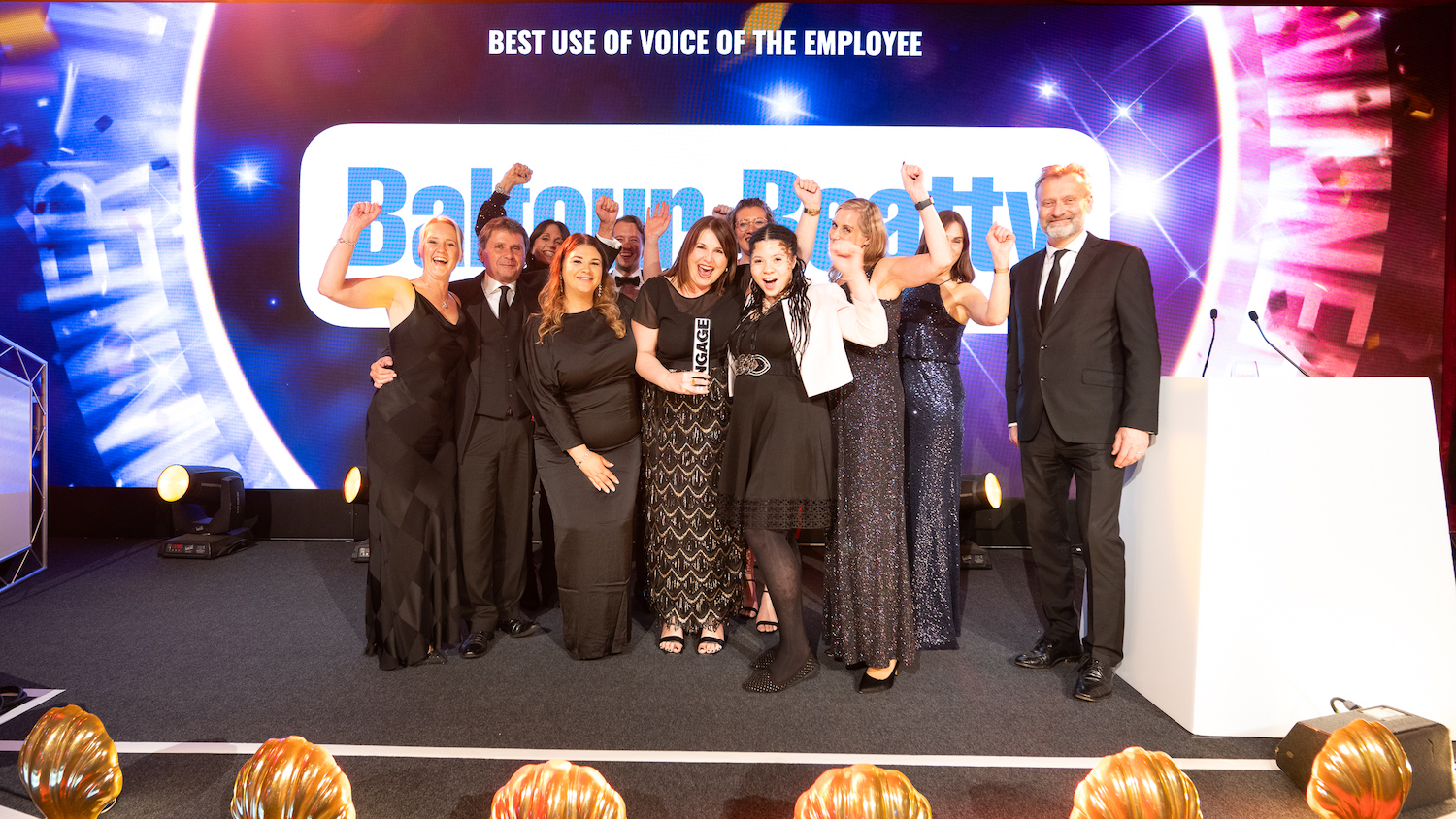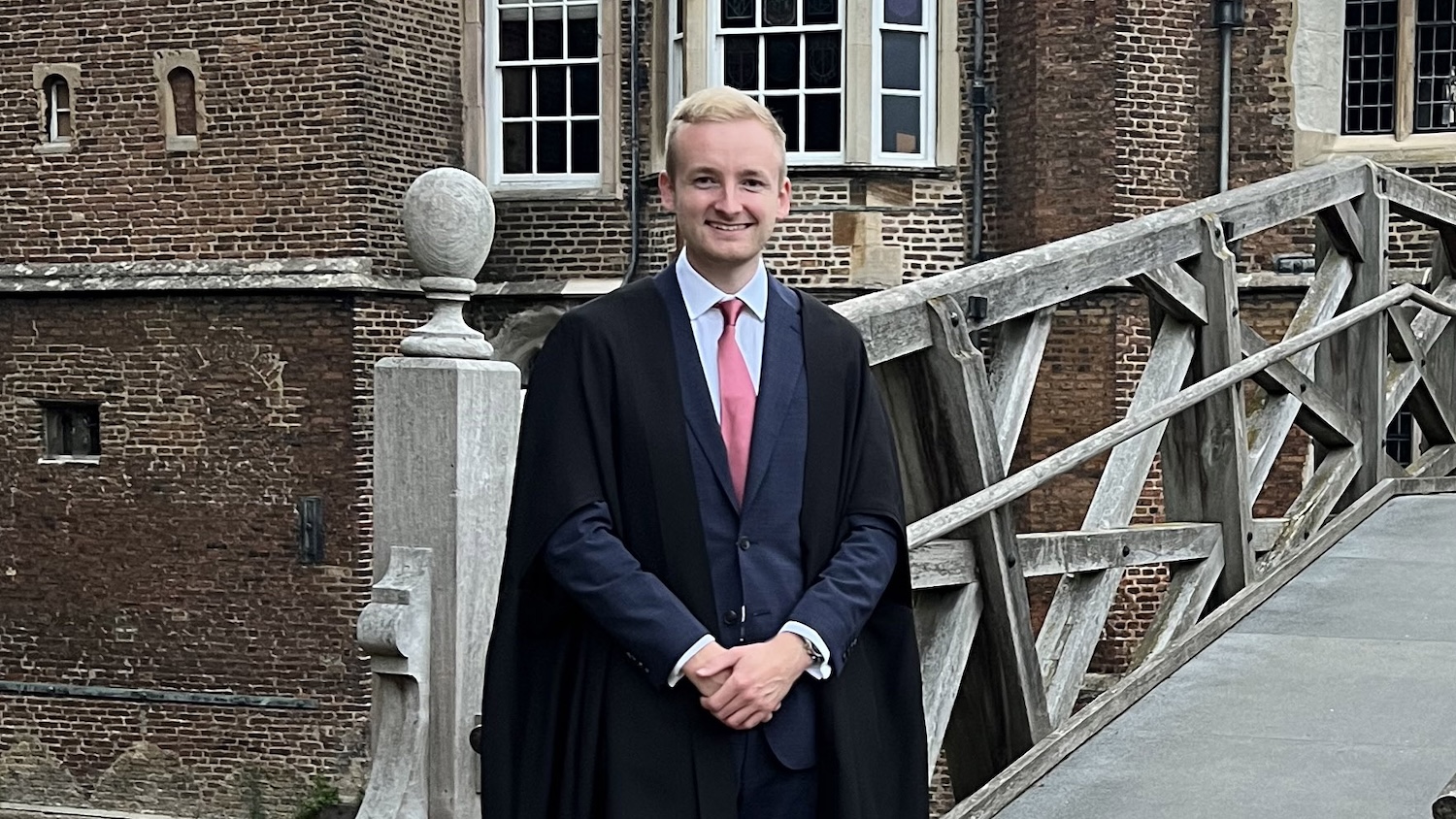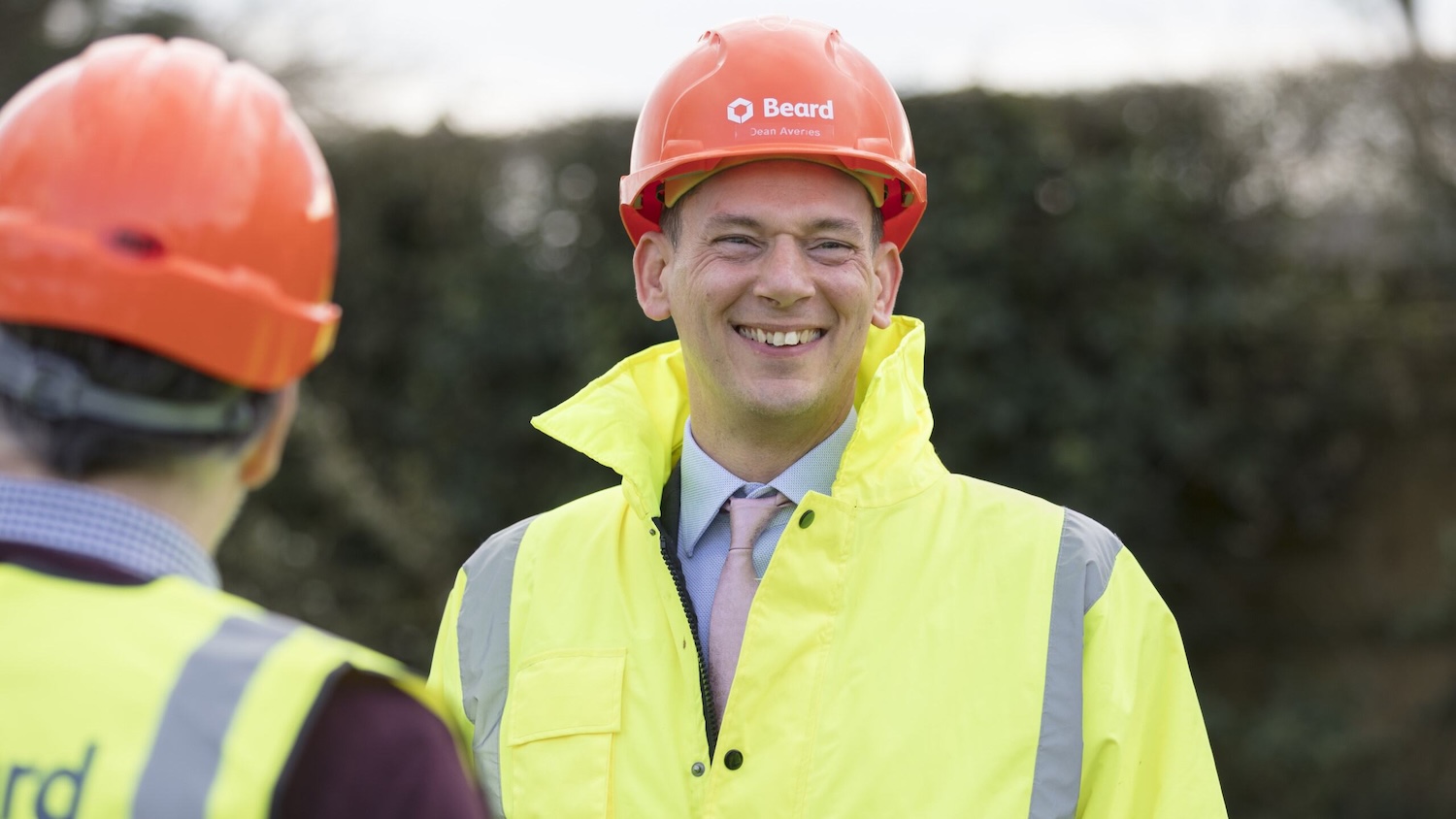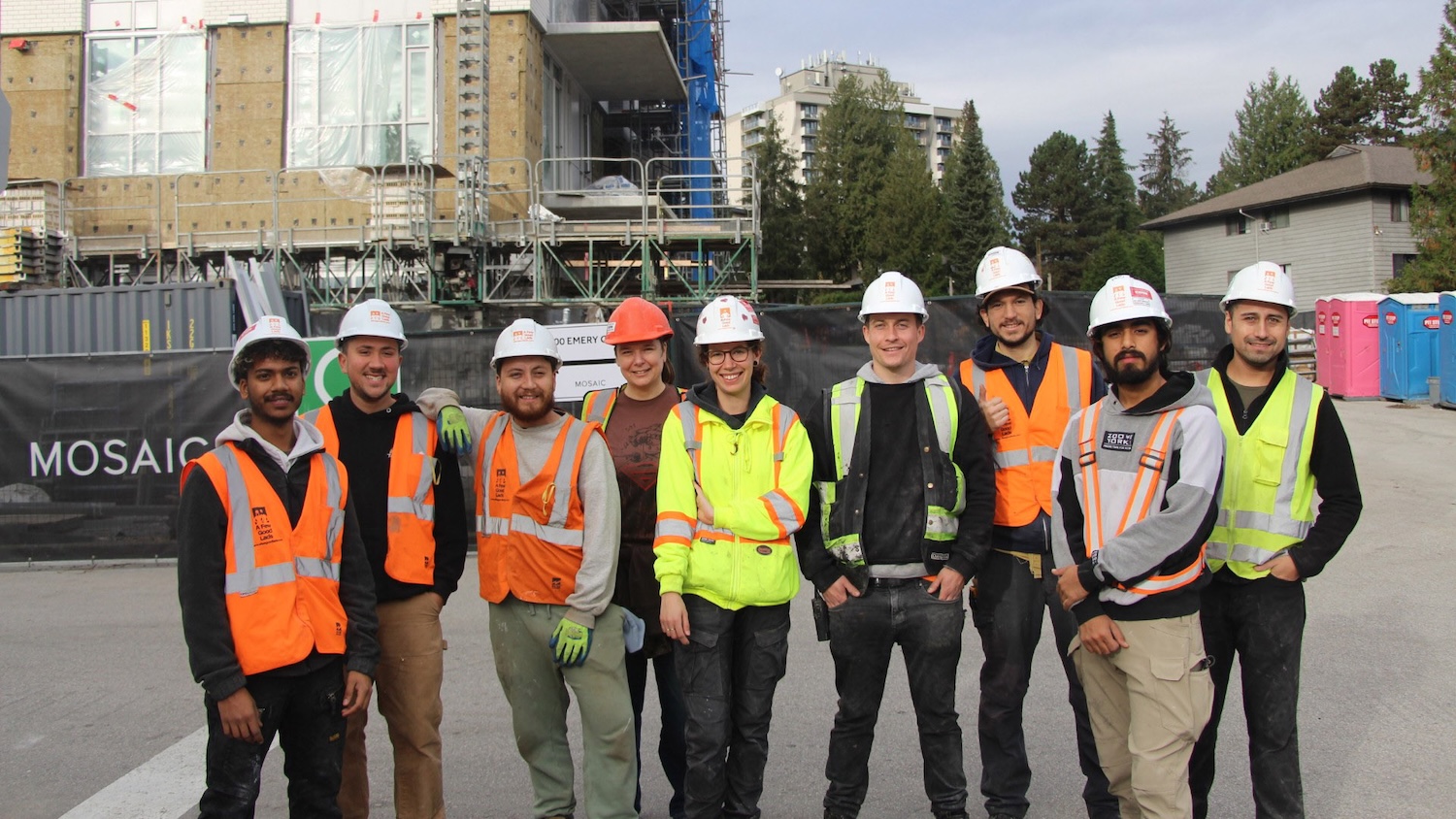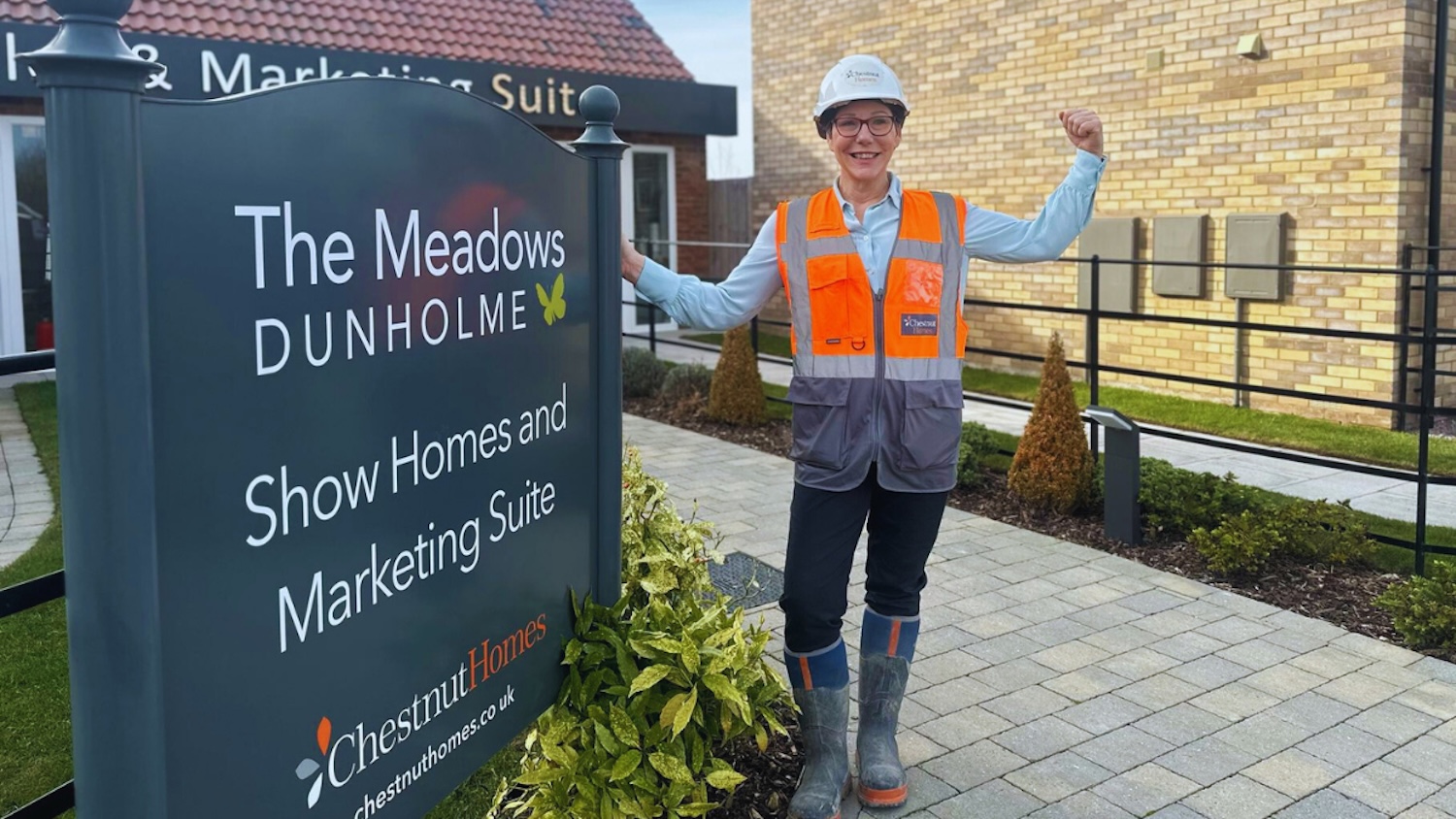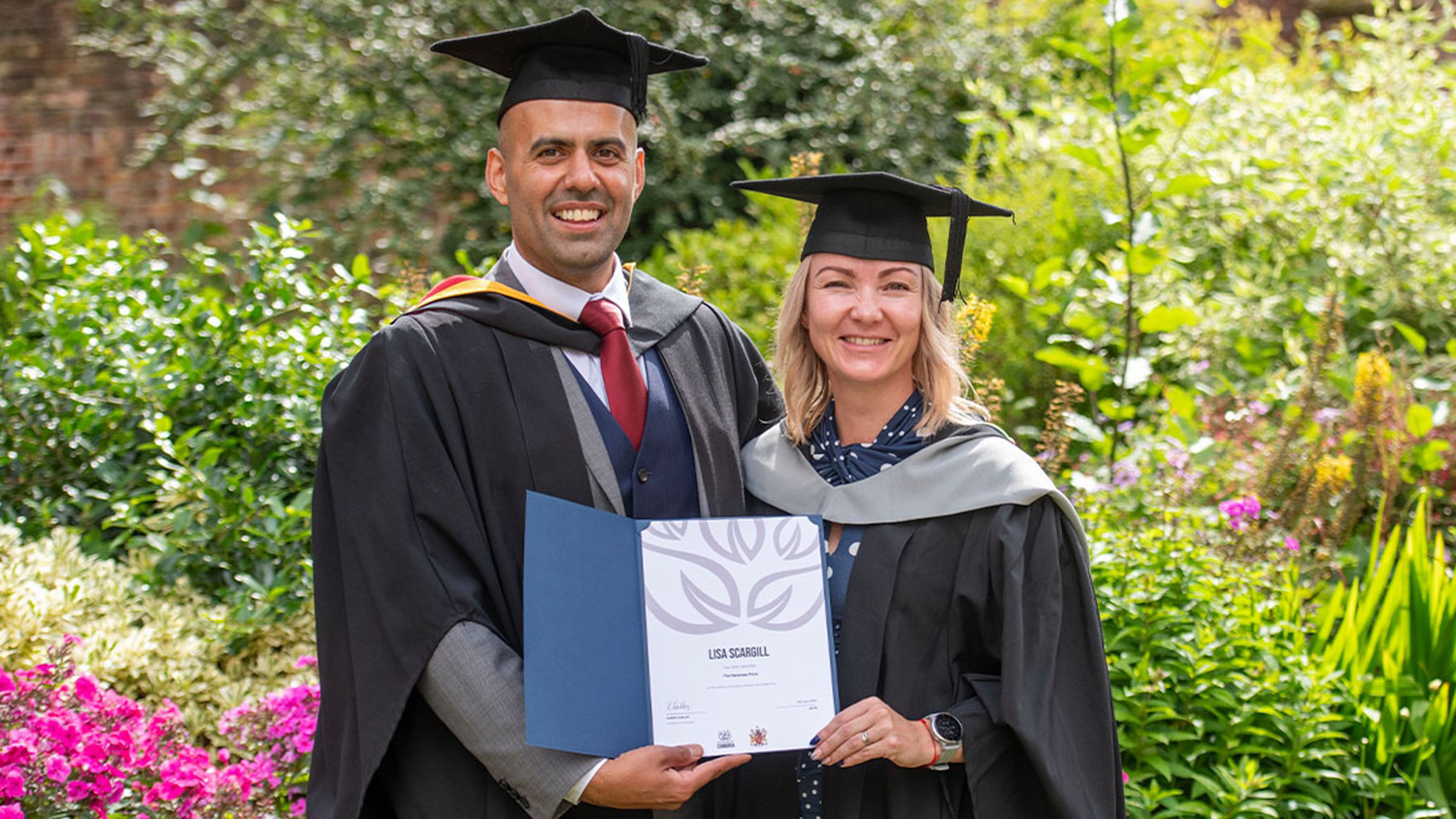
Harnessing leadership skills to deliver social value
Lisa Scargill, regional social impact manager at Balfour Beatty, was recently announced as the first ever recipient of the Hensman Prize for her contribution to the Cumbrian community. Here she tells CIOB People why her career and her commitment to social value are intrinsically connected
What was your route into construction and your role at Balfour Beatty?
I came into the industry through a very non-traditional route. I was volunteering at a local school to try to get myself on the career ladder. Through that, I trained to be a careers guidance professional because I found my passion was around helping people to realise their own potential.
I started in a school with 800 young people, then my aim was to step up and help more people in a larger area. So, I went to work alongside the Careers & Enterprise Company delivering the careers hub model.
I started in Blackpool, so my remit grew from one school to 13 schools. Then it grew to Lancashire-wide, so I was responsible for 154 schools and colleges.
A big part of my role was around connecting employers to education, so I was working with a lot of large organisations, like Balfour Beatty.
Through both my course and my role, I am really connected to what Cumbria is, what it looks like, and what it means to live and work in the area. I have been able to share my journey and make a difference in the local community, which has been recognised through my degree programme
There was an opportunity to join the business as social impact manager in Cumbria on the box encapsulation plant at Sellafield. I jumped at the opportunity as it was a continuation of everything I had achieved in my previous roles, but taking a different approach to deliver social impact.
I have recently moved into the regional social impact manager role for the north of England, but I have been with Balfour Beatty since November 2022. It has been quite a journey!
You recently won the inaugural Hensman Prize. Congratulations! Can you tell us a bit about the award and why you received it?
For the past three years, I have been studying at the University of Cumbria. The degree was bespoke to Cumbria and North Lancashire, fully funded by the Francis Scott Trust through its Aspiring Leaders Programme.
The whole programme is designed to build leaders for the third sector. When I started the degree, I was working in the third sector, but all of the skills are transferable to my role at Balfour Beatty.
There was a small cohort of 12 of us on the programme – we were a tight knit group, all mature students and some with second degrees. We all learned so much about ourselves, self-leadership, what it means to work in the sector and deliver social impact in a variety of ways.
Through both the course and my role, I am really connected to what Cumbria is, what it looks like, and what it means to live and work in the area. I have been able to share my journey and make a difference in the local community, which has been recognised through my degree programme.
The programme lead, Zaeed Mohammed (pictured above left with Scargill), nominated me for the award. He celebrates every little win, which is fantastic. I feel very lucky to win the prize and I am incredibly grateful for the recognition.
Peter and Claire Hensman are well known in Cumbria, so knowing that they believe I am worthy of the award makes it doubly exciting for me.
What prompted your decision to go back to study?
Before I joined Balfour Beatty, I was working for Inspira, which is a charity based in Cumbria. I went for a promotion but was told that I didn’t have enough leadership experience, which was really disheartening.
There was no real action plan for how I would gain that experience, so I went off and found it myself through the Aspiring Leaders Programme.
How did you juggle the demands of studying with a busy career?
I was really hesitant about going back to study. I have a family, a household, a full-time job and I have studied for the past three years.
It has been hard. It is a constant juggling act, but it is incredibly rewarding. I had the full support of my previous employer, and then Balfour Beatty when I joined the company.
I have decided to go back to the University of Cumbria in October, when I will start my doctorate in business administration.
I will be studying for the next four years and I will be delving into research around social impact and how we measure it – what is the correct way to do that and what is the real outcome of the things we deliver?
What can employers do differently to support someone who wants to progress and move into a leadership role?
As an industry, we can’t move forward without fresh perspectives. Looking at the skills gap and the people that we need and when we need them, we can’t discount potential candidates because of their age or lack of experience within the business.
I think there are a lot of organisations, large and small, that have a lot to learn about being able to give people opportunities, introducing secondments and shadowing, and providing support, because it all makes such a difference
Across Balfour Beatty, we are great at internal mobilisation and recognising talent. There are some roles that require a degree and a technical qualification, but there are also hundreds of other functions where we just need to find the right people.
From my perspective, it is all about opportunity and good people managers who recognise talent at an early stage.
I think there are a lot of organisations, large and small, that have a lot to learn about being able to give people opportunities, introducing secondments and shadowing, and providing support, because it all makes such a difference. You have to put people on the stage and help to shine a light on them.
Social value is rapidly growing priority for the construction industry. How do you think this will help to attract the next generation of talent?
The early careers candidates that are coming through to Balfour Beatty at the moment are really interested in social entrepreneurship. Lots of them have additional jobs or are volunteering.
I think this is the most purpose-driven generation we’ve seen for a while, so we really need to harness that.
It’s also important to make sure that our people can make a difference in a way that really resonates with them – delivering social impact should be meaningful to us as individuals. That’s the key when you’re considering recruitment and retention.
Social impact is important for the local community, but it’s also rewarding for the individual when they know they are making a genuine difference.


